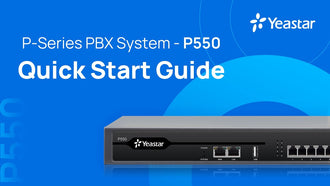

How VoIP Can Reduce Your Costs?
- 31 Dec, 2018
Whether you’re a consumer or enterprise, it is hard to ignore VoIP technology. Phone operators in quite a few countries have already announced a cut off date for the PSTN, while others are conducting trials of VoIP calling. Carriers have already switched the backend infrastructure in many areas to VoIP, even if their customers don’t know it yet. Attracted by the low prices of VoIP calling plans, individuals and households were the first to upgrade. Pretty soon business organizations followed their lead.
With the proliferation of social media and online communication channels, voice calling is not as popular with people as it used to be. However businesses continue to rely on phones for day to day workflows. Customer service, tech support, sales, marketing and distribution are just a few of the departments that cannot function if the phones stop working. Enterprise phone plans are generally more expensive than consumer lines. Although they offer many more features, the price point is also correspondingly high.
Even today, cost savings continues to be the biggest attraction of VoIP for businesses. Small and medium enterprises typically could not afford the high prices for advanced features like IVR or auto attendant. VoIP brings these features within reach for organizations of any size and in any industry. Almost everyone knows that switching to VoIP can save you money because of lower priced plans, zero upfront investment and the ability to make free calls to anyone within the company.
Three Indirect Ways VoIP Can Save You Money
But VoIP can help you save money in many different ways. Some of them are direct and very obvious such as the fact that internal calls between employees are free (regardless of location). You can see the difference in the first month’s phone bill from your service provider. Others are less obvious and come to light over a longer period of time. Let’s take a look at three such benefits of VoIP.
Affordable Equipment

This cost-saving feature is not readily apparent when you first upgrade to VoIP services. But the fact that you do not have to invest in costly PBX boxes early on also means that there is no hardware to maintain. Every piece of equipment that you purchase has a maintenance cost associated with it. Over time things begin to break down and need to be repaired or replaced. With VoIP, the PBX is a virtual one and services are delivered online. This means you do not have to hire technicians to take care of maintenance, repairs and upgrades.
Larger organizations have entire teams or departments to take care of telephony equipment. Smaller enterprises have to hire experts for short assignments as and when required. With VoIP you do not have to budget for any of these line items. These costs are often hidden or overlooked but can add up to a substantial amount over the years.
Plug and Play

PSTN based PBX boxes were extremely complex and require experts to change the configuration or modify anything. The process to add a few lines or disable certain features for a particular group was not quick or easy. You have to have experts with the expertise and experience to make the necessary changes. Again, large companies generally have experts in-house to take care of such issues. Smaller companies make do with assigning these tasks to various employees who already have other responsibilities.
This is yet another way that VoIP can save you money. With hosted VoIP services, you no longer need experts to make any changes. Users can enable or disable certain features on their own through online dashboards. Managers and other administrators can control features for specific groups or the entire organization. Enterprises can either eliminate those job roles or reassign personnel to other departments where they can provide more value.
Eliminate Redundant Resources

One of the biggest drawbacks of PSTN based systems is that you cannot integrate them with other enterprise tools. They existed in a silo of their own. Consider examples like faxing or voicemail. You need fax machines and the phone line to send or receive faxes. You have to access voicemail by dialing a specific number. Those messages cannot be forwarded to your email inbox. If you wanted conferencing facilities or video chatting, you had to pay extra.
VoIP consolidates all of these communication channels in one place. You can send faxes and get voicemails in your email inbox with VoIP. Conference calls and video chat are included in most plans. You don’t need specialized equipment or go to a different operator for these options. You can get one consolidated bill for everything from one provider, simplifying the payment process. These are just three indirect ways that VoIP can save you money. Upgrade today and see for yourself!
Contact us now (920013450) to know the best solutions to replace your old telephony systems with the latest VoIP solutions








